Do you want to become a vegetarian and stop eating meat? Then you've come to the right place! It's great that you want to eat a more plant-based diet, because you're doing a lot of good for yourself, the animals and the environment. It also opens a new door for you to great and, above all, varied plant-based meals.
However, as with any habitual change in our everyday lives, one of the most important things for a good start to a vegetarian diet is that you always keep the reasons for your personal decision in mind and stay motivated.
In this article, I would like to give you the best tips for a good start. I'll also introduce you to the benefits and explain my personal experiences with the decision to go vegetarian. Let's go!
Advantages: Why are more and more people eating a vegetarian diet?
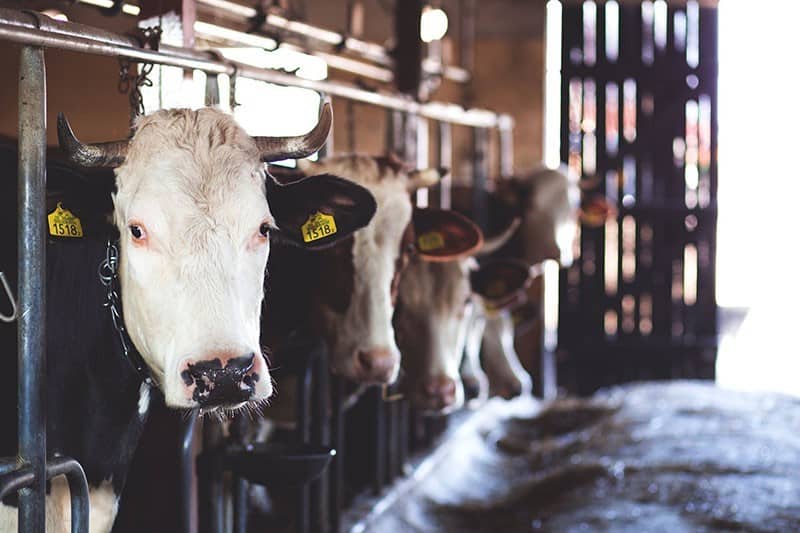
What are the reasons for becoming a vegetarian? That's a question whose motivating answer become part of our flesh and blood should. Finally, it provides information about your personal reasons for not eating meat.
The most common motifs are above all:
- Protect environment
- Save animals from death
- Factory Farming or prevent animal suffering
- Your own Improve health
- Preserve religious and cultural customs
- Simple aversion to eating meat
Now I would like to give you the most valuable advantages and possible disadvantages that speak for and against never eating meat again.
Advantages of vegetarian diet
Here I will first answer the question of WHY:
- Animals feel fear and pain: Animals have feelingsjust like we humans do. By eating a vegetarian diet, fewer animals have to suffer for you in the slaughterhouse.
- Stop destruction of forests: Due to the high demand for meat, it comes to the Deforestation of (rain)forests. The areas are cleared for cattle pastures and animal feed cultivation (soybean meal), among other things.
- Stop violence against animals: Pigs, for example, have their curly tails cut off and chicks have their beaks shortened so that they do not injure each other under stress. They are also gassed or Shredding male chicks. As a vegetarian, you reduce such cruel acts, at least in part.
- Reduce water and energy consumption: It takes more than 15,000 liters of water to produce one kilogram of beef.1 The energy required to keep and slaughter animals is also enormous. Your vegetarian diet counteracts this problem.
- Stop eating medications: In factory farming in particular, animals are given drugs such as antibiotics so that they do not die and produce as much meat as possible. However, the active ingredients pass into the animals' cells. Vegetarians ultimately prevent antibiotic resistance, as they do not indirectly consume the drugs through their food.
- No more unnecessary death of animals: The Heinrich Böll Foundation has Meat Atlas 2021 has published shocking figures. In German private households, around 10.5 million animals are disposed of in the trash every year in the form of meat and sausage waste alone. This includes around 8.9 million chickens, 640,000 pigs, 450,000 turkeys, 360,000 ducks, 71,000 geese, 52,000 sheep and goats and 50,000 cattle. As a vegetarian, you are doing something about it.
Are there any disadvantages to a vegetarian diet?
We should not be able to offer the other side objective discussion should of course always be taken into account. Here is one reason that might tend to speak against becoming a vegetarian:
Vitamin B12 must be taken as a dietary supplement (is available here*) should be included. However, this recommendation also applies to most meat eaters. Ultimately, therefore, there is no logical or morally justifiable reason to continue eating meat.
On the contrary: the Academy of Nutrition and Dietetics (an association of more than 112,000 nutritionists) has in this study confirms that a well-planned vegetarian diet, as well as a completely vegan diet, is healthy and nutritionally appropriate and nutritional diseases can counteract this.
Becoming a vegetarian: 10 valuable tips for getting started
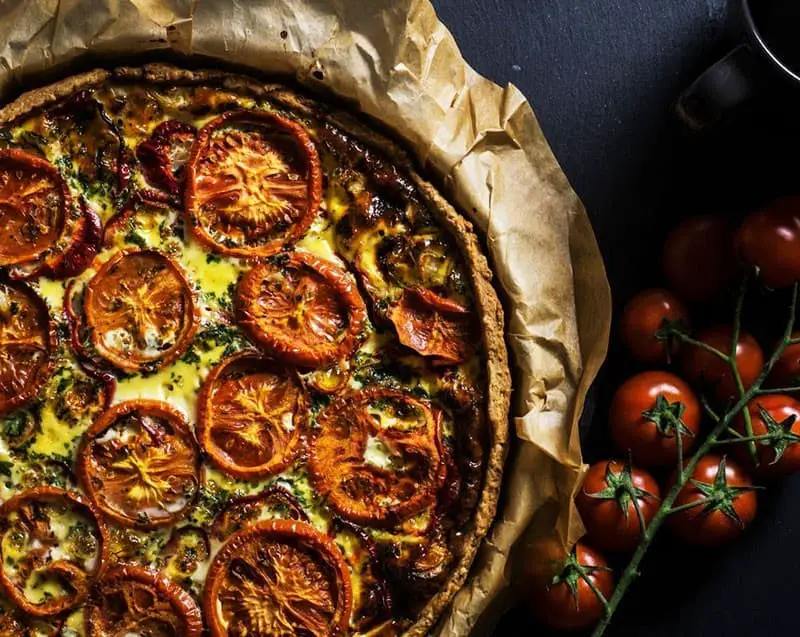
Even tradition, taste, habit and convenience cannot justify continuing to eat animals. But how can we now become a vegetarian as easily as possible in practice? How do you break the habit? And how do you ensure that you don't become weak again after a few days?
With the following Tips for your transition on a vegetarian diet, you are guaranteed to be on the safe side!
1. define clear rules
As a vegetarian, you don't eat meatfinished. Statements like "I eat very little meat" or "a fish now and then" are too vague and the reason why many people fail in their endeavors.
To become a vegetarian, you simply need clear rules. The best with a fixed deadline. Here is a suggestion for a promising formulation to yourself:
"I won't be eating meat from next Monday."
This is a clear statementthat also gives you something Preparation time (e.g. for recipe searches and grocery shopping at the weekend).
2. prefer restaurants with vegetarian offer
Almost every restaurant now has vegetarian dishes on the menu card.
Especially in large cities like Berlin, there are also many Restaurants that only offer vegan or vegetarian dishes. When searching, this Veggie restaurant finder (Happy Cow) can help decisively.
But there are also special national cuisines where you have a very good chance! Whether Italian or Asian - there is a very good chance that you will find meat-free dishes here. After all, both cuisines have a history of being very plant-based. And experience has shown that even dishes with meat can be quickly converted into vegetarian meals.
Tip: How you veganize dishes in every restaurant or vegetarianize, I will be happy to explain in the linked blog article.
3. cook more yourself
I believe that cooking and trial and error is the key to an easy start in vegetarian life. By simply swinging the cooking spoon yourself more oftenyou can decide for yourself which ingredients are in your meals.
You can experiment, optimize and try out - and make your favorite meat dishes vegetarian.
Just cook more than usualso you don't have to rush out and buy a kebab the next day during your lunch break. And if you do, there's always the vegetarian falafel kebab 😉.
4. read accompanying books on vegan and vegetarian nutrition
Having books to guide you through your transition to a vegetarian diet will help you Additional security and above all Inspiration give. Of course, I can also say this from my own experience: I always lacked creativity because I didn't know enough delicious vegetarian meals. Some Books have helped me a lot.
Here once again a List with my absolute recommendations for beginners:
- Vegetarian cookbook XXL* (by Markus Schneider)
- Vegan & Easy* (by Bianca Zapatka)
- All vegetarian - The book* (Edeka Media GmbH)
- Cooking for the climate* (by myself and Julian Hölzer)
- Vegan diet for beginners* (by Niko Rittenau and Sebastian Copien)
5. find alternative substitutes for meat
Discover the variety of vegan-vegetarian foods. In addition to fruit, vegetables, pulses, rice and pasta, there are also some plant-based substitute products, such as Sausages from pea protein or Soy Sliced Meat.
Such products not only look like meat, they also taste very similar. That's why vegetarian and vegan substitute products then many switchers a good help when entering in the vegetarian diet.
Velivery offers a huge selection of substitute products*be sure to take a look.
And then there are also unprocessed foods that are similar to meat. Dried tomatoes or Mushrooms also serve as a spicy alternative to meat, for example.
And then there are even vegan and vegetarian burgers with a mushroom patty! Over time, you will find more and more productsthat will help you to eat a vegetarian diet in the long term.
6. find and eat protein, meat-free foods.
There are myths circulating such as "If you give up meat, you have a protein deficiency". The animal proteins also come from plants that the animals have eaten at some point.
Nevertheless, vegetarians should of course also make sure they get enough protein. Dairy products and eggs, but above all plant-based foods such as Soy products, pulses (peas, beans, lentils etc.), Nuts, spinach and Mushrooms for example, are rich in proteins.
Tip: Read the article about vegan protein sources inspire, there you have vegan and vegetarian equal in the interaction.
7. collect meatless recipes
If you tell someone that you haven't eaten meat for a while, they often ask you questions like: "Only salad now, then, or what?" - Questions that show that many people simply cannot imagine how diverse plant-based cuisine is.
Simply start with an ordinary Recipe book (e.g. Vegetarian cookbook XXL* or of course also Vegan & Easy*) and cook lots of delicious vegetarian dishes.
And then you just let yourself Blogs, magazines and documentaries so that you have new recipes to choose from every day. You'll see how big your selection of vegetarian meals becomes over time.
Here still a few recipesthat you can start with, for example:
- Quick chili and sesame spaghetti
- Veggie burger with lentil patties
- Tomato couscous with (vegan) shepherd's cheese
- Vegetarian tortellini pan
8. make your meat-free lifestyle known to family & friends

This tip is not only valuable if you want to become a vegetarian, but also in general if you want to consolidate a change in your life.
Why is that the case? By telling particularly important people about your project, the probability of success rises to unimagined heights. After all, you want to come across as someone who follows through on things he sets out to do.
So you can simply answer the question "What's new?" by saying that you are now a vegetarian. That makes for a kind of liability. Ideally, you will also receive helpful support from your friends and family.
Tip: How you can change your Inspire parents and family for sustainability can or frequent Controversial topics such as "veganism" or "meat consumption" can be found in the linked articles.
9. networking with others and learning from each other
It is incredibly important to talk to other people about the vegetarian lifestyle - even for a Steep learning curve and lasting fun in the matter.
For example, if a Veggie Facebook group exchange ideas in Cooking forums with like-minded people or take part in vegan regulars' tables in your area. There are so many possibilities!
10. watch documentaries and movies about vegetarianism
Just let yourself be inspired a bit. I can tell you from my own experience that the images from documentaries about our diet anchor in your personal attitude be
This helps you to get an idea of meat production and also to Stay vegetarian in the long term or even become vegan.
The following documentaries (and feature films) are, in my opinion, highly recommended for all of us who want to become vegetarian or stop eating animal products altogether:
- Cowspiracy
- What The Health
- Dominion
- The Game Changers
- Seaspiracy
- Food, Inc.
- We Feed The World
- A little pig named Babe (yes, that fits well too!)
Do you have any other documentary or movie tips on the subject of vegetarianism? If so, please write them in the comments. I'll then add to the list. And if you need even more inspiration, then be sure to check out these vegan documentaries an.
Becoming a vegetarian: My personal experience!
My most important experience right at the beginning: it is extremely helpful if you can make the switch to a vegetarian diet step by step and together with friends or your partner. Commitment and mutual support make change much easier.
Now we cook a lot more ourselves and suddenly there are delicious meals and combinations on the plate that you couldn't imagine how great they actually taste without meat. From the Potato and broccoli casserole up to stuffed mushrooms. Above all Spices and sauces help to spice up any dish.
Immediately at the beginning of the transition, I first realized how much meat I had been eating all my life. How many animals do you think there were? A feeling for this this live counter of animals killed for human purposes.
But I also noticed, how easy it isto do without meat. There are thousands of alternatives. Whether for veal schnitzel (e.g. vegetable schnitzel) or mortadella (e.g. vegan mortadella made from sunflower protein) and many other meat products.
Tip: I have now realized that animals also have to suffer and die for animal products such as eggs, milk and cheese. This moment is one of my personal Reasons to go vegan now. In the linked article, you can find out which other motives were decisive. I am sure that they also correspond to your values.
So is it worth becoming a vegetarian?
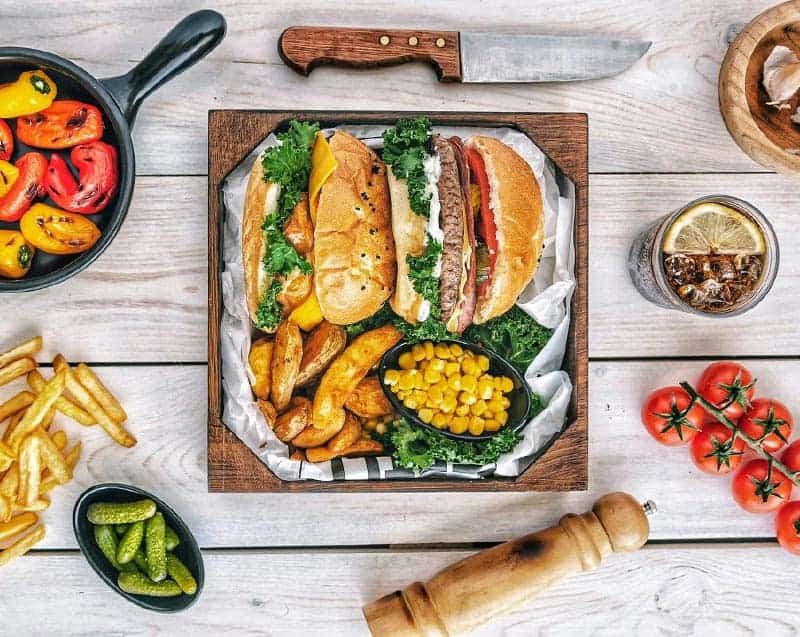
But 100 percent! I myself now live veganbut the intermediate step of becoming a vegetarian made it so easy for me. And apart from my own experience, I'm sure the 8.1 million vegetarians and 1.5 million vegans in Germany feel the same way.2
By becoming a vegetarian and convincing others to adopt a more plant-based diet, you are setting an example. important statement against the Climate Change and others Environmental problems of our timeagainst animal suffering and, above all, that everyone can survive without eating meat and, not least, live a healthier life.
Simply view your changeover as a continuous process and not as a quick fix. This will keep you motivated in the long term and help you learn day by day.
"The lower animals, like man, manifestly feel pleasure and pain, happiness and misery."
Charles Darwin, British natural scientist and author (more at Animal Welfare Quotes)
Do you have any questions, suggestions or other tips for getting started with vegetarianism that you would like to share? Then feel free to write a comment below this post.
Stay open to new things,

PS: If you want to go one step further, take a look at the parallel article on the Start into the vegan life in. There one renounces completely animal components in the own meals.
References:
- Federal Environment Agency: Hidden water (as of 22.03.2017). https://www.umweltbundesamt.de/themen/verstecktes-wasser. [22.10.2024]. ↩︎
- Federal Ministry of Food and Agriculture (BMEL): Deutschland, wie es isst - der BMEL-Ernährungsreport 2021 (as at: 19.05.2021), available at https://www.bmel.de/DE/themen/ernaehrung/ernaehrungsreport2021.html. [22.10.2024]. ↩︎

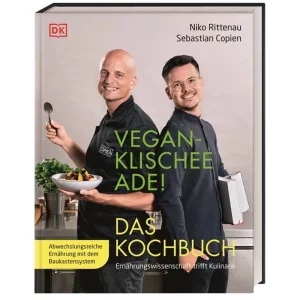

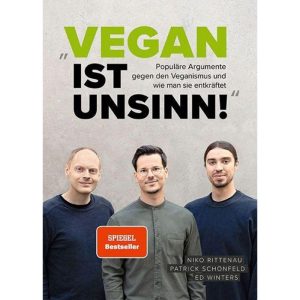
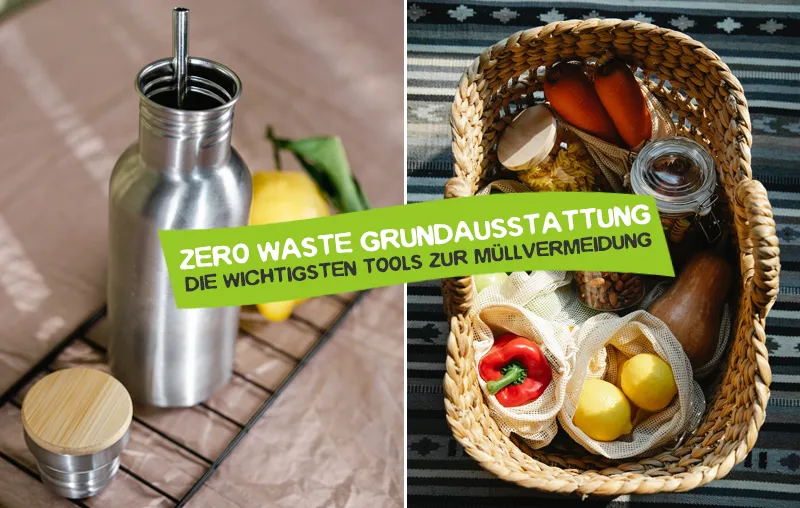

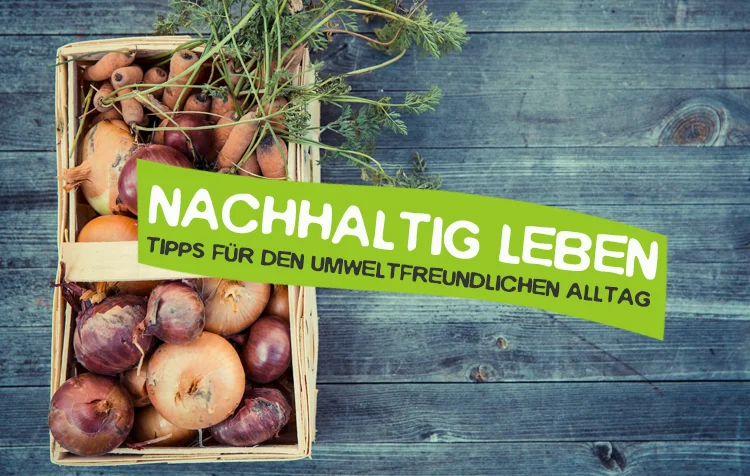

Hello Christoph 🙂
I visited your blog two years ago and thought to myself: You'll never manage that anyway, neither living vegan or vegetarian, nor reducing my plastic consumption. But in the last few weeks, I've been looking into the topic in more detail and I have to say, it's not that difficult 😀
I no longer find it difficult to give up meat...apart from (unfortunately my vice for years) energy drinks...they are neither healthy, nor vegetarian and in addition "packaged" in disposable deposit cans...I hope there will be an alternative on the market at some point.
Almond and soy milk are absolutely awesome by the way! <3
Anyway, I find your blog mega and has also already brought me one or the other synapse to think. Thanks for it!
Very dear greetings
Hanna
Hey Hanna! Thanks for your feedback, that's just great to hear!
Great that you are now convinced and gradually optimize. I feel the same way, I don't even know why I ever drank animal milk.
Keep going full throttle, good luck!
Best regards
Christoph